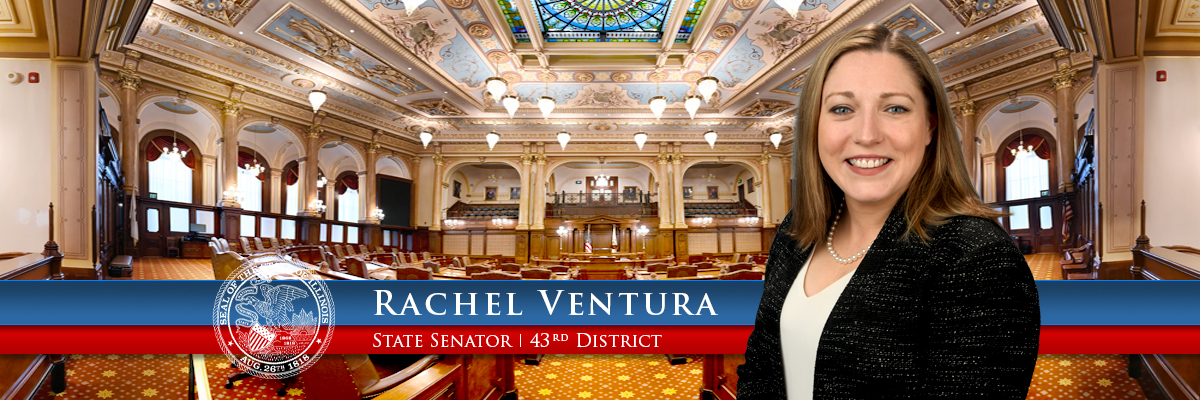Ventura-backed medically assisted treatment program to address opiate overdose deaths passes committee
- Details
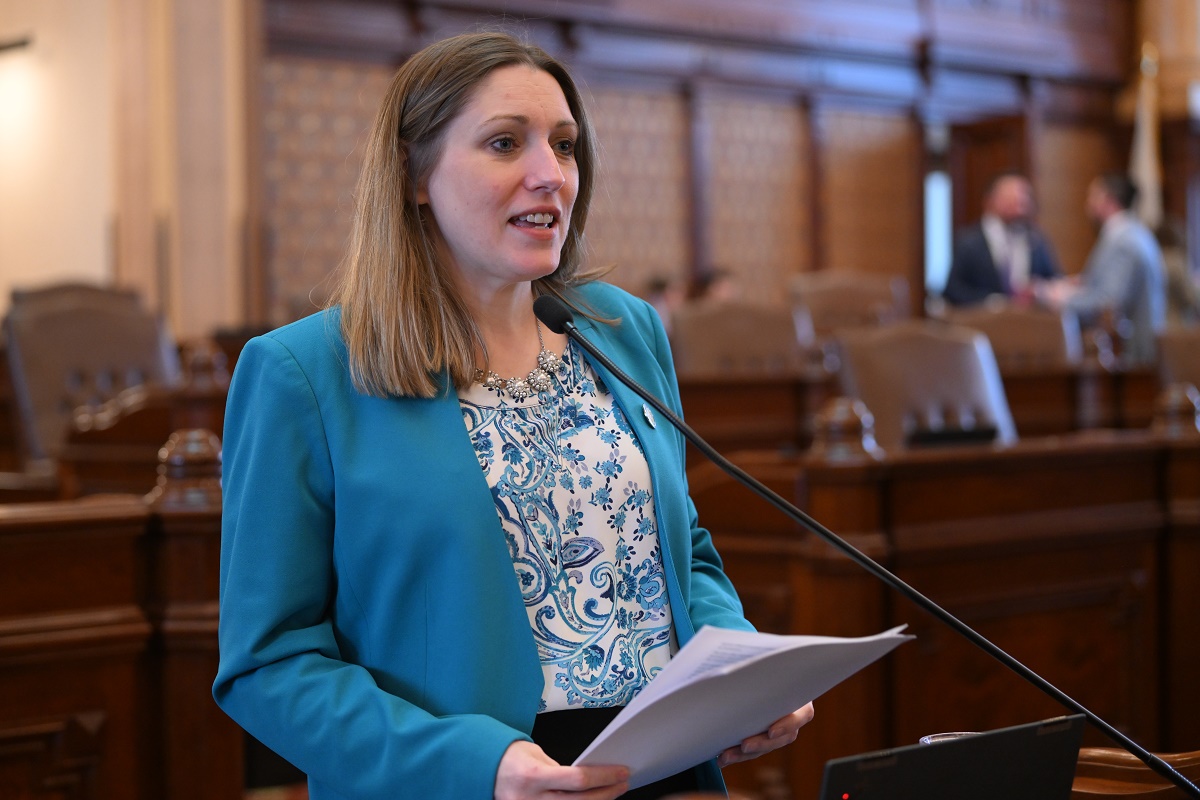 SPRINGFIELD –A measure from State Senator Rachel Ventura that would provide opiate use disorder treatments for incarcerated individuals passed the Senate Criminal Law Committee Tuesday.
SPRINGFIELD –A measure from State Senator Rachel Ventura that would provide opiate use disorder treatments for incarcerated individuals passed the Senate Criminal Law Committee Tuesday.
“Overdoses are the leading cause of death among people returning to their communities after incarceration,” said Ventura (D-Joliet). “There is an urgent need for comprehensive opiate use disorder programs statewide, and this legislation would save lies, is compassionate, and has the potential to break the cycle of addiction, improve health outcomes and reduce rates of recidivism.”
Ventura renews commitment to fight for working families in response to governor’s budget proposal
- Details
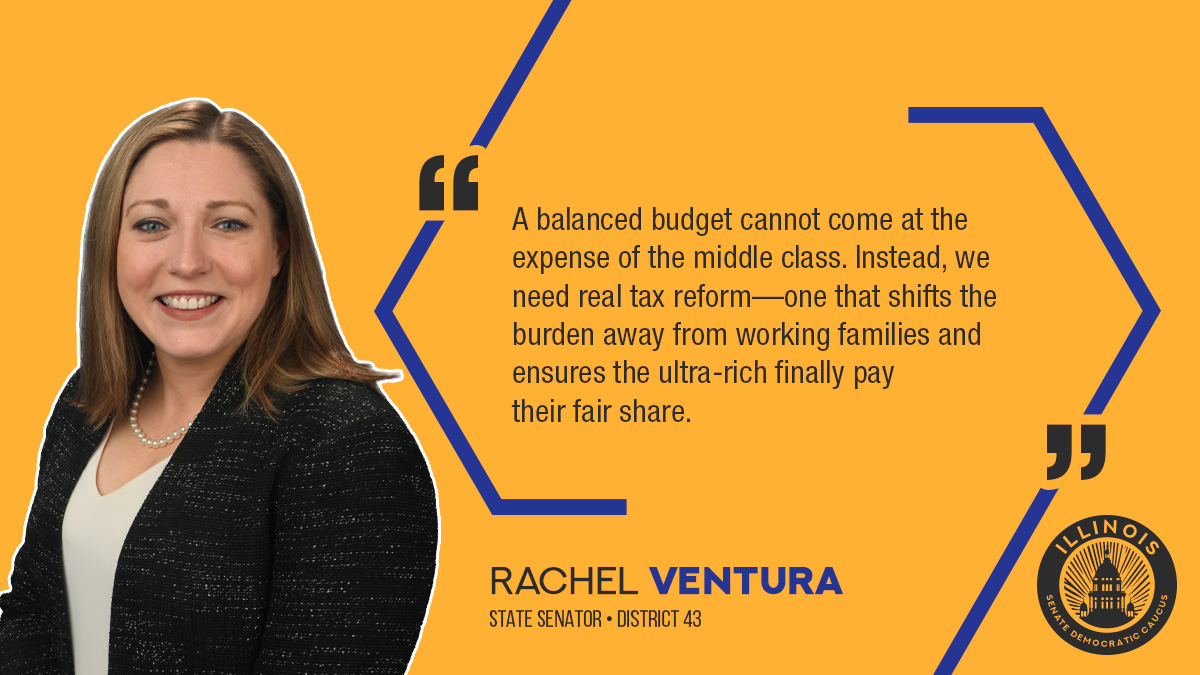 SPRINGFIELD – In response to Governor JB Pritzker’s budget address today, State Senator Rachel Ventura (D-Joliet) issued the following statement:
SPRINGFIELD – In response to Governor JB Pritzker’s budget address today, State Senator Rachel Ventura (D-Joliet) issued the following statement:
“As the Trump Administration continues to sow chaos through the federal government, it is our responsibility as a state to act as a stabilizing force and champion of everyday people and communities. Our residents deserve to thrive, not merely survive.
“I am committed to passing a budget that prioritizes the working class and secures funding for working families in an era of rising costs and devastating federal funding cuts. I was gratified to hear that the governor’s budget proposal includes a significant investment in affordable housing projects and repairs to crumbling health care infrastructure. These are commendable measures to address the want of resources for too many working residents in our state.
Ventura introduces historic AI protection package
- Details
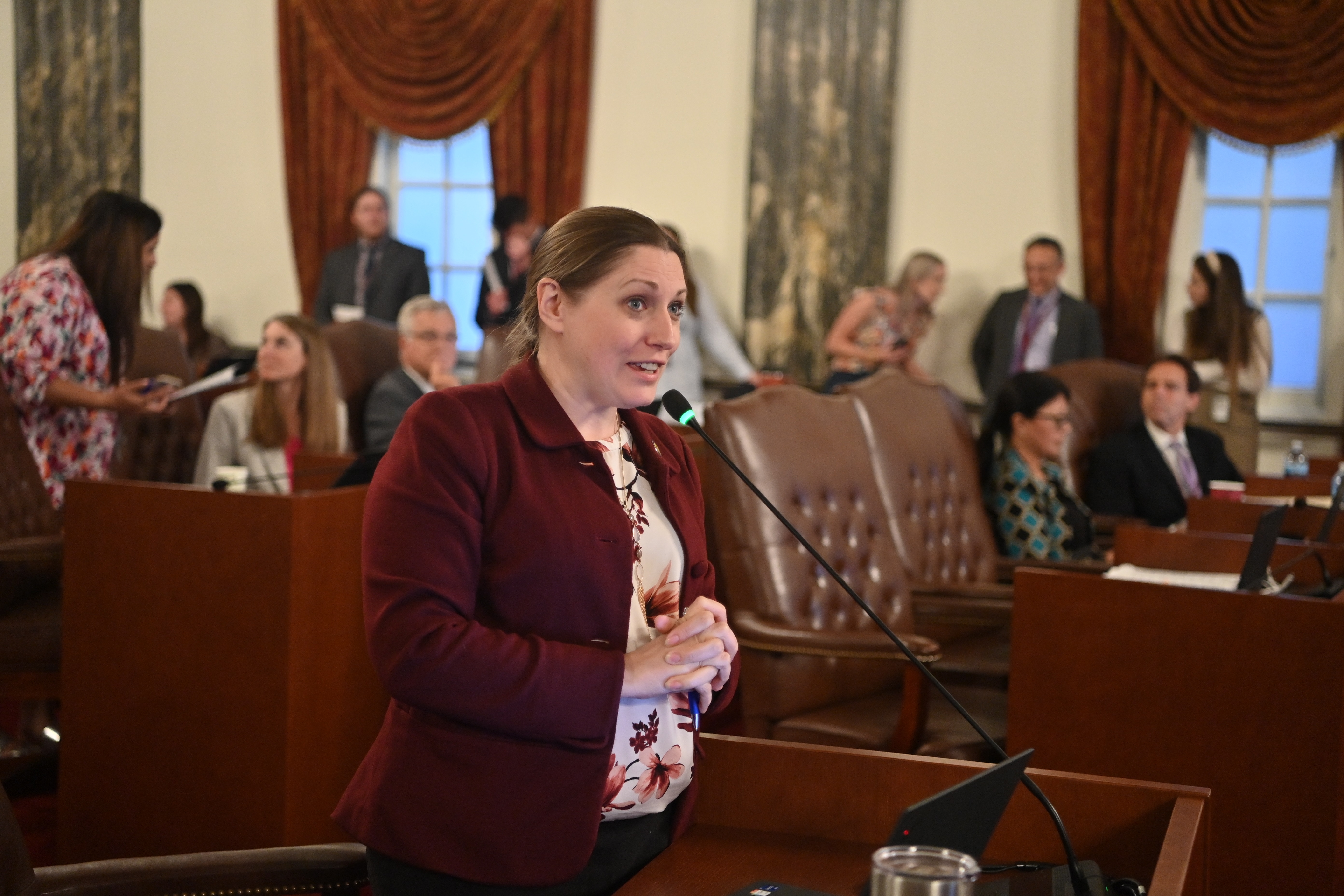
SPRINGFIELD — State Senator Rachel Ventura introduced a comprehensive package of legislation aimed at protecting Illinois residents from unchecked artificial intelligence, strengthening data privacy rights, improving online safety for young people and holding AI developers and data center operators accountable for real-world harms.
“As artificial intelligence becomes more embedded in our daily lives, Illinois has a responsibility to ensure innovation does not come at the expense of privacy, safety or basic fairness,” said Ventura (D-Joliet). “These bills put people first by setting clear rules, increasing transparency and protecting consumers, workers and communities.”
The legislative package includes Senate Bill 2994 to safeguard sensitive personal data, including neural and biometric information collected by consumer devices such as health apps, sleep trackers and wearable technology. By extending privacy protections to emerging forms of neuro-data, the legislation would prevent companies from exploiting deeply personal biological information without meaningful consent.
Ventura’s proposal also includes Senate Bill 3890, which would establish a comprehensive data privacy and artificial intelligence governance framework modeled on leading protections adopted in Minnesota and California. The bill would grant consumers the right to access, correct, delete and transfer their personal data and to opt out of targeted advertising, data sales and profiling, particularly when automated systems are used to make decisions affecting housing, employment or other significant life outcomes. It would require businesses to minimize data collection, obtain affirmative consent for sensitive data, conduct risk assessments for high-risk AI systems and implement safeguards against bias and discrimination – with heightened protections for children and vulnerable populations.
Senate Bill 2995 would strengthen transparency and accountability around AI use by requiring disclosure when individuals are interacting with an AI system, whether through chat, phone, email or drive-thru services, and guaranteeing access to a human upon request. Another measure, Senate Bill 3364, would expand notice requirements when AI is used in decision-making processes, such as housing or employment determinations.
To protect consumers from harmful or deceptive practices, Ventura introduced Senate Bill 3180 with the goal of prohibiting companies from training AI systems on user content by default without clear, separate consent. Another proposal, Senate Bill 3502, would establish product liability standards for AI developers, ensuring systems are designed to account for foreseeable harms, while Senate Bill 2993 would prohibit artificial intelligence from independently prescribing medication without human oversight by a licensed pharmacist.
Recognizing the growing environmental and community impacts of AI infrastructure, Ventura also advanced Senate Bill 3830, which would require data centers and AI operators to secure long-term water and carbon-free energy plans, monitor and report resource usage, mitigate community harms and comply with decommissioning and e-waste standards.
Finally, the package includes Senate Bill 3264, or the Illinois Online Safety Act, which would strengthen protections for youth on social media platforms by requiring cyberbullying prevention policies and the creation of Online Safety Centers.
“This package is about responsibility,” Ventura said. “Responsible innovation, responsible data practices and responsible stewardship of our communities and resources. Illinois can lead by setting smart, balanced guardrails that protect people while allowing technology to serve the public good.”
The measures in this package await Senate committee assignment.
Ventura introduces bill to keep water systems away from private companies
- Details
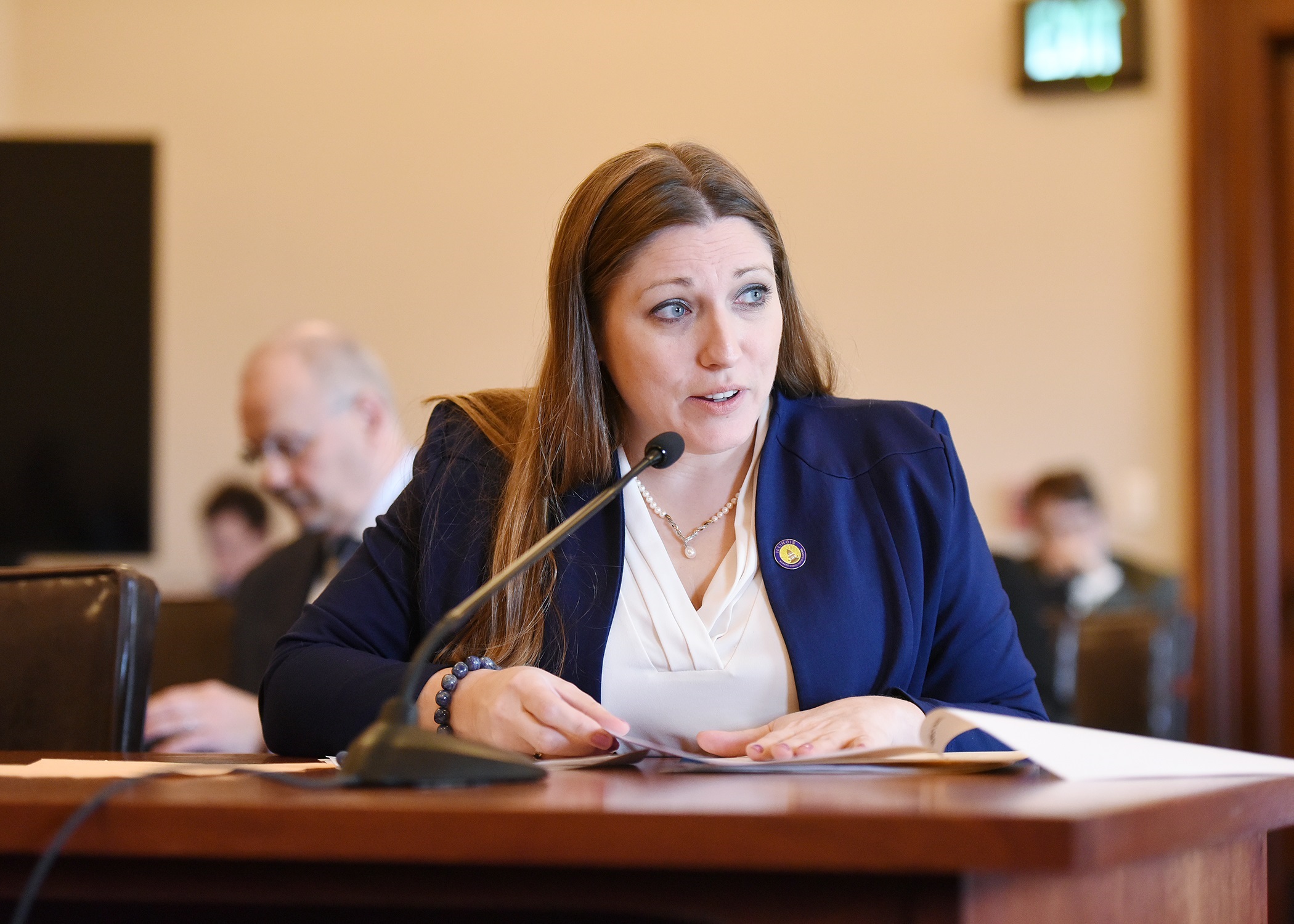 SPRINGFIELD – Following severe water rate hikes that affected Bolingbrook and the surrounding area, State Senator Rachel Ventura introduced a new measure that would discourage municipalities from selling off their water lines to private companies and would disincentive companies from raising prices for the rest of the ratepayers.
SPRINGFIELD – Following severe water rate hikes that affected Bolingbrook and the surrounding area, State Senator Rachel Ventura introduced a new measure that would discourage municipalities from selling off their water lines to private companies and would disincentive companies from raising prices for the rest of the ratepayers.
“Access to water is a human right, and the exorbitant price hikes put in place by private water companies put that right in danger,” said Ventura (D-Joliet). “This legislation would encourage local governments to keep their water systems in their own hands and prevent private water companies from passing off the cost of out of town systems onto existing ratepayers."
More Articles …
Page 1 of 62
